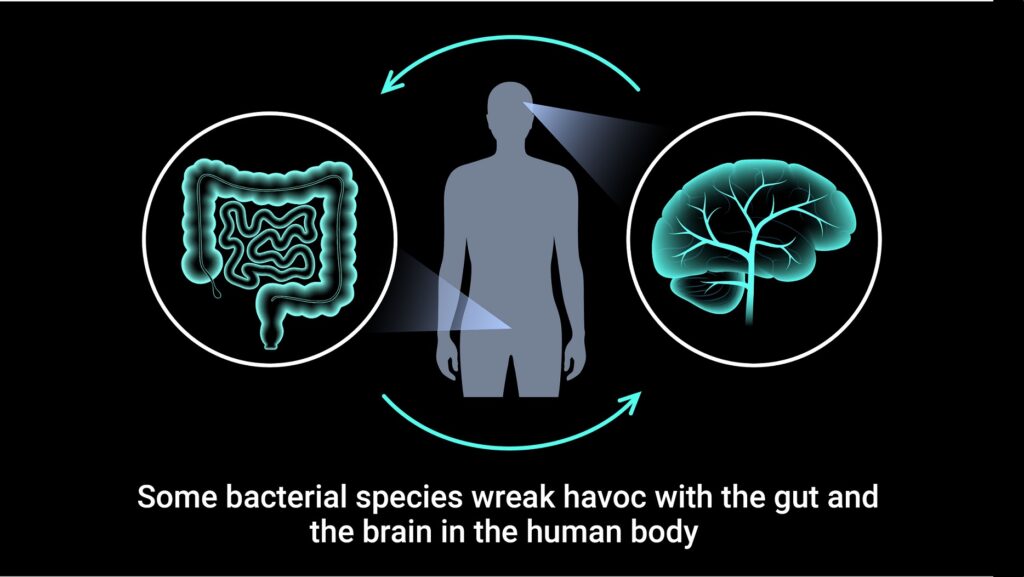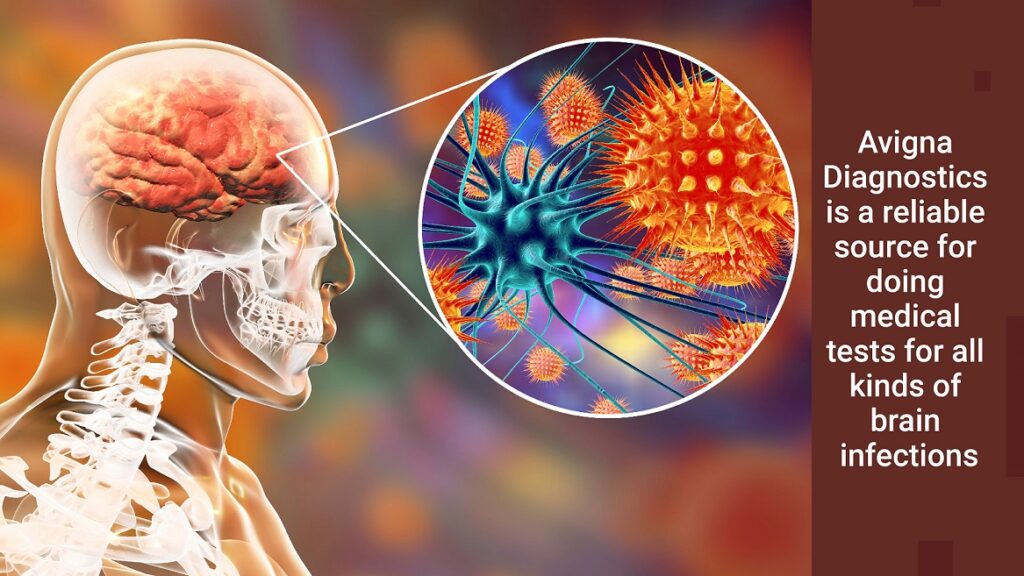Guidance from a reliable diagnostic centre in Hyderabad.
Some bacterial species wreak havoc with the gut and the brain in the human body. Its presence is stressful and ruins mental well-being.
How are the gut and the brain linked?
Is it because of the dominant protein produced by bacteria (called brain neurotropic) essential for neuron growth? In autism the gut bacteria assume importance. It can also result in mood disorders and anxiety issues in adulthood.
This post focuses on a realistic overview of brain infections.
Avigna Diagnostics is primarily engaged in testing and conducting procedures related to detecting a variety of medical issues. This information is curated for patient understanding of brain infections.
Overview of Brain Infections
When does a brain infection occur? Medical history suggests that it is likely to happen when fungi, protozoa, bacteria or virus (or any other micro-organism) starts developing. A micro-organism multiplies rapidly causing harm to this vital organ. It enters through a direct injury to the brain or via a wound. It also can infiltrate from another infected part of the body.
The causes:
- Bullet injury, skull fracture or major head injury
- Ear infection or chronic sinuses
- The immune system being weakened due to the contraction of AIDS
- Chemotherapy/ after splenectomy
- Congenital heart diseases
- Meningitis (inflammation of the brain membrane or spinal cord)
- TB
Infections that occur due to bacteria in the brain:
- Brain abacus– Pus fills the cavity (parenchyma)
- Granuloma –tumorous lesions in the brain
- Pus layer outside the brain
Bacteria in the brain symptoms
Fever
- Headaches
- Vomitting
- Stiffness in the neck
- Pain looking at bright lights
Weaknes and drowsiness
- Confusion and inappropriate behaviour
- Irritability and convulsions
- Sleepiness
Various scans are done to detect the issue to understand the line of treatment required. A culture and sensitivity test reveals how the microbes can be removed. The treatment usually involves a hospital stay in case an infection is suspected to spread in the brain.
It is important to get immunized to prevent TB. As India has many cases of TB routine tests are advisable after consulting the doctor. Ear infections and congenital heart diseases require early healing to ensure that the bacteria do not spread rapidly. When the infections occur there are health issues like Lyme, syphilis, or TB. A virus can also enter through contaminated food or drinks. Other sources include insect bites through skin contact and respiratory droplets. In some cases, the infections can also come from rabies, mumps, poliovirus, equine encephalitis and herpes.
Early diagnosis is vital so that the organ functions normally and also save the life of the patient. Your neurologist can be consulted if one or more symptoms occur. The diagnosis usually depends on the symptoms detected. Neurological examination includes evaluation of motor and sensory nerves.
The recommended tests include:
- Imaging– From which lesions are detected in the spinal cord or the brain.
- MRI and CT scans–reveals abacus formation and issues related to multiple sclerosis
- Blood culture – determines the specific bacteria to be targeted for treatment
- Lumbar Puncture– removes cerebrospinal fluid for white blood cells, bacteria and protein.
Avigna Diagnostics is a reliable source for doing medical tests for all kinds of brain infections. We are spread across Andhra and Telangana for the safety of all patients.
Related Keywords:
Blood Cells, Brain, Brain Infections, CT Scans, Diagnosis, Human Body, MRI Scans, TB, TB Routine











Comments by admin